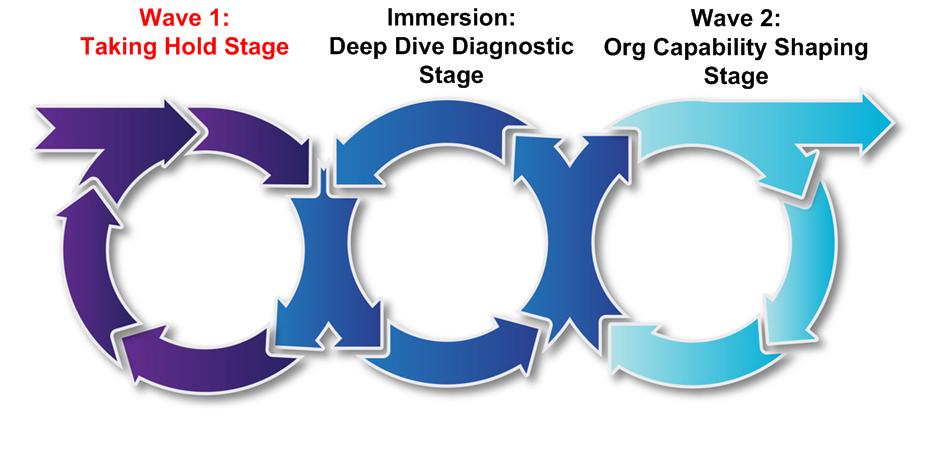Wave 1: Taking Hold Stage

Most executives enter the "Taking Hold" period having done some background research, interviews with their network of contacts, and "due diligence" discussions with other colleagues. They obtain a first impression and set of hypotheses to be tested in analyzing the organization and its ability to perform. In this stage, the academic research found that the executive typically draws heavily from his or her past experience in analyzing the current situation. The more past experience is relevant to the current situation, the better. The wise executive will also maximize this so called "honeymoon period" to ensure that he or she maintains the independence of his or her point of view.
The new executive needs to be vigilant to not allow his or her developing hypotheses and evaluations to be high jacked, unduly biased by early contacts, or distorted by existing politics. Not bound by prior loyalties or having been a part of the culture, the new executive may more objectively identify more obvious problems, take corrective actions, and demonstrate some early wins. These are all consistent with the typical guidance offered by an executive coach for the first 90 to 100 days.
Sometime in the first four or six months while implementing the first wave of changes, however, the new executive begins to realize that he or she does not fully understand the problems and challenges inherent in the organization, the politics, relationships, cultural pockets, networks of alliances on specific issues, and the agendas of key individual keys. Some changes that were first considered to be hard are surprisingly easily. More disturbing, some changes that were first thought to be easy are incredibly hard to implement. As time progresses, the executive comes to learn that the organization's resistance to change is stronger, more intractable, and involves more people in the broader and deeper parts of the organization than first anticipated. If Wave 1 is the initial orientation and the first cycle of learning, this realization of the need for a deeper dive to analyze the organization is the beginning of the Immersion Stage and the second iteration of learning. The insights learned from Immersion lead later to an even bigger wave of change called "Reshaping" (Wave 2) which involves the shaping of the organizational capabilities necessary to improve performance.
Related Links:
Wave 1: Taking Hold Stage (Current Page)
A Sample of Organizational Diagnostic Tools (Typically during the Immersion Stage)
###
Wiznami Corp. is an a senior executive coaching service based in Naples, Florida.

